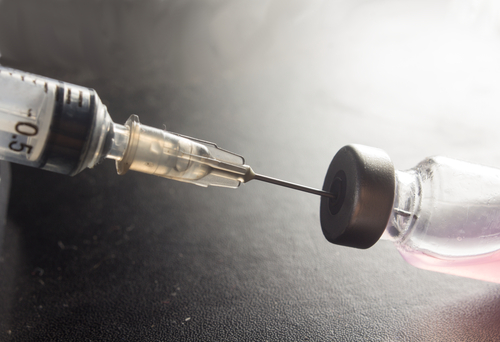 A massive new study has found no link between a common vaccine and autism, researchers announced today.
A massive new study has found no link between a common vaccine and autism, researchers announced today.
The study is the latest among years of research projects which make no connection between inoculations and an increased risk for the autism spectrum, the researchers said.
The measles-mumps-rubella vaccine did not lead to increased rates of autism among some 95,000 children monitored over a 15-year period, according to the federally-funded study published by the Journal of the American Medical Association today.
The study was prompted by surveys of parents who have children with autism spectrum disorder, or ASD, and who believe that the measles-mumps-rubella, or MMR, vaccine may have caused its onset, according to the researchers.
But those researchers concluded today’s findings were just the latest refutation of the “anti-vaccine” groups who link certain inoculations to increased autism rates.
“Consistent with studies in other populations, we observed no association between MMR vaccination and increased ASD risk among privately-insured children,” the authors wrote.
The study compared children within a large commercial health insurance plan, and who also had older siblings. Medical records from 1997 to 2012 showed the vaccine did not lead to increased incidence of autism for the younger children – even among those who had older siblings on the spectrum, the researchers said.
The younger children with autistic siblings were less likely to be vaccinated, the experts found.
The work was funded by the National Institutes of Health, the National Institute of Mental Health, and the U.S. Department of Health and Human Services.
The anti-vaccine movement began in 1998 with the publication of a paper in The Lancet, a British medical journal, claiming a dozen children had been adversely affected by the MMR vaccine. The paper was retracted by the medical journal in 2010, but opponents of vaccinations have continued to be vocal. Anti-vaccine parents in some parts of the U.S. have opted against getting their children inoculated against ailments which were once considered nearly eradicated. In some parts of the U.S., measles and other diseases have been contracted in outbreaks with increasing frequency.
The CDC and other agencies have touted studies showing that vaccines are safe, and not related to autism. Last year, researchers who analyzed roughly 1 million children published a study in the journal Vaccine which found vaccines, and ingredients like mercury, appeared to have no causal link.
The CDC has also maintained there is no link between vaccines and autism, in a series of studies.
In a separate JAMA editorial published today, an expert found the latest study be consistent with prior research. Bryan King, a doctor at the University of Washington and Seattle Children’s Hospital, said there is “no signal to suggest a relationship between MMR and the development in autism.”
“Taken together, some dozen studies have now shown that the age of onset of ASD does not differ between vaccinated and unvaccinated children, the severity or course of ASD does not differ between vaccinated and unvaccinated children, and now the risk of ASD recurrence in families does not differ between vaccinated and unvaccinated children,” King wrote.
But autism rates have continued to increase at the same time, according to nationwide statistics.
Filed Under: Drug Discovery



